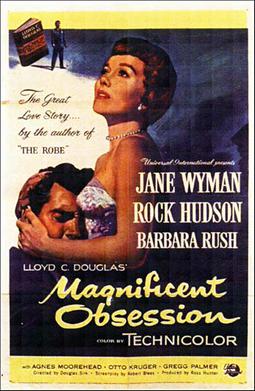A blog formerly known as Bookishness / By Charles Matthews
"Dazzled by so many and such marvelous inventions, the people of Macondo ... became indignant over the living images that the prosperous merchant Bruno Crespi projected in the theater with the lion-head ticket windows, for a character who had died and was buried in one film and for whose misfortune tears had been shed would reappear alive and transformed into an Arab in the next one. The audience, who had paid two cents apiece to share the difficulties of the actors, would not tolerate that outlandish fraud and they broke up the seats. The mayor, at the urging of Bruno Crespi, explained in a proclamation that the cinema was a machine of illusions that did not merit the emotional outbursts of the audience. With that discouraging explanation many ... decided not to return to the movies, considering that they already had too many troubles of their own to weep over the acted-out misfortunes of imaginary beings."--Gabriel García Márquez, One Hundred Years of Solitude
Search This Blog
Tuesday, March 14, 2017
Magnificent Obsession (Douglas Sirk, 1954)
Lloyd C. Douglas, Lutheran pastor turned novelist, was in some ways the anti-Ayn Rand. His Magnificent Obsession, published in 1929 and first filmed in 1935 with Irene Dunne and Robert Taylor directed by John M. Stahl, advocates a kind of "pay it forward" altruism, the obverse of Rand's laissez-faire individualism. Douglas preached a gospel of service to others with no expectation of rewards to oneself. Fortunately, director Douglas Sirk and screenwriters Robert Blees and Wells Root keep the preaching in the 1954 remake down to a minimum -- mostly confining it to the preachiest of the film's characters, the artist Edward Randolph (Otto Kruger), but also using it as an essential element in the development of the central character, Bob Merrick (Rock Hudson), in his transition from heel to hero. This was Hudson's first major dramatic role, the one that launched him from Universal contract player into stardom. Not coincidentally, it was the second of nine films he made with Sirk, movies that range from the negligible Taza, Son of Cochise (1954) to the near-great Written on the Wind (1956). More than anyone, perhaps, Sirk was responsible for turning Hudson from just a handsome hunk with a silly publicist-concocted name into a movie actor of distinct skill. In Magnificent Obsession he demonstrates that essential film-acting technique: letting thought and emotion show on the face. It's a more effective performance than that of his co-star, Jane Wyman, though she was the one who got an Oscar nomination for the movie. As Helen Phillips, whose miseries are brought upon her by Merrick (through no actual fault of his own), Wyman has little to do but suffer stoically and unfocus her eyes to play blind. Hudson has an actual character arc to follow, and he does it quite well -- though reportedly not without multiple takes of his scenes, as Sirk coached him into what he wanted. What Sirk wanted, apparently, is a lush, Technicolor melodrama that somehow manages to make sense -- Sirk's great gift as a director being an ability to take melodrama seriously. Magnificent Obsession, like most of Sirk's films during the 1950s, was underestimated at the time by serious critics, but has undergone reevaluation after feminist critics began asking why films that center on women's lives were being treated as somehow inferior to those about men's. It's not, I think, a great film by any real critical standards -- there's still a little too much preaching and too much angelic choiring on the soundtrack, and the premise that a blind woman assisted by a nurse (Agnes Moorehead) with bright orange hair could elude discovery for months despite widespread efforts to find them stretches credulity a little too far. But it's made and acted with such conviction that I found myself yielding to it anyway.
